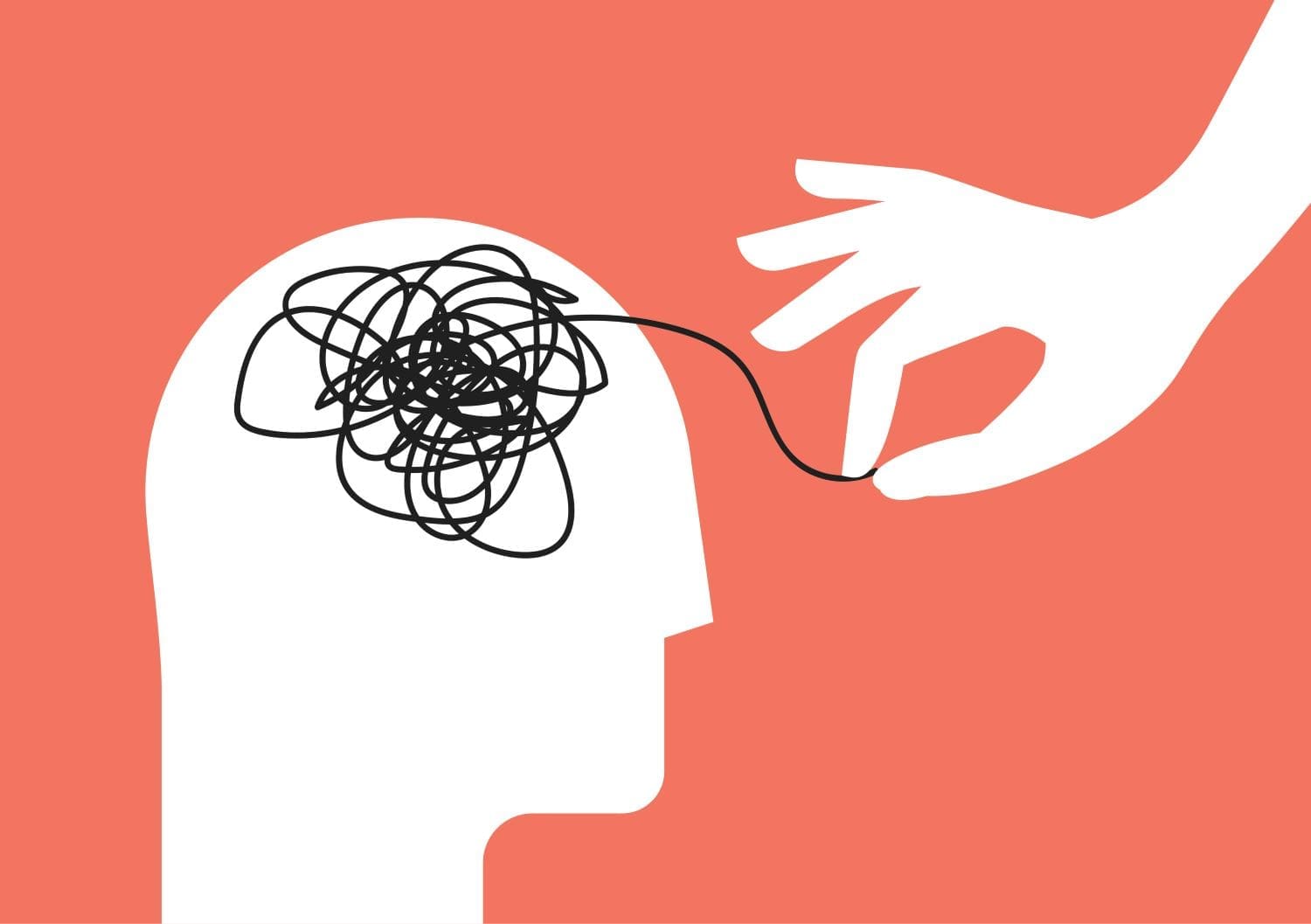
Table of Contents
- What is Generalized Anxiety Disorder
- Chronic Tension, Anxiety and your Health
- How Anxiety Can Cause Physical Symptoms
- Long Term Consequences of Anxiety
- Is My Anxiety Normal?
Generalized Anxiety Disorder
Anxiety is an emotion that is characterized by feelings of tension and worried thoughts. A person with a generalized anxiety disorder (GAD) usually will display excessive anxiety or worry most days and has done so for at least 6 months.
They will worry about many things, such as:
personal health

work
social interactions
and everyday routine life events and circumstances.
This fear and anxiety can cause significant problems in many areas of their life, such as work, school, and even social interactions.
How Does Chronic Tension And Anxiety Affect Our Physical Health?
Chronic tension and anxiety can have detrimental effects on our physical health. It may lead to physical symptoms such as stomach pain, indigestion, chest pain, numbness or tingling, vision changes, and sweaty palms. These symptoms can persist and negatively impact our overall physical well-being.
The voice of anxiety is always critical
Even when there’s absolutely nothing wrong, I sometimes get this overwhelming sense of doom, like danger is lurking just around the corner.
What Specific Physical Symptoms Can Anxiety Cause?
 Anxiety can cause various physical symptoms, including stomach pain, indigestion, chest pain, numbness or tingling, vision changes, and sweaty palms. These symptoms are often a result of the tension and anxiety that individuals experience.
Anxiety can cause various physical symptoms, including stomach pain, indigestion, chest pain, numbness or tingling, vision changes, and sweaty palms. These symptoms are often a result of the tension and anxiety that individuals experience.
What Are The Long-Term Consequences of Carrying Tension and Anxiety In Our Bodies?
Carrying tension and anxiety in our bodies for long periods of time can have negative long-term consequences. It can lead to physical symptoms such as stomach pain, indigestion, chest pain, numbness or tingling, vision changes, and sweaty palms. These symptoms may persist and have an impact on our overall physical health.
Anxiety is mysterious. It can feel like an invisible cage that keeps you prisoner on your sofa, unable to move for fear of something that you can’t quite identify.
Anon.
How Does Anxiety Affect Relationships?
 Anxiety can have a significant impact on relationships. When individuals struggle to manage stress, they may lash out at others, causing strain and tension in their relationships. Additionally, the tendency to withdraw from social interactions can lead to feelings of isolation and distance from loved ones. Anxiety can create barriers to open communication and emotional connection within relationships.
Anxiety can have a significant impact on relationships. When individuals struggle to manage stress, they may lash out at others, causing strain and tension in their relationships. Additionally, the tendency to withdraw from social interactions can lead to feelings of isolation and distance from loved ones. Anxiety can create barriers to open communication and emotional connection within relationships.
Generalized Anxiety Disorder Symptoms Include:
Feeling restless and on edge
Easily fatigued

Difficulty concentrating; mind going blank
Being irritable
Experiencing muscle tension
Difficulty controlling feelings of worry
Sleep problems, difficulty falling or staying asleep, restlessness, or unsatisfying sleep
How Do I Know If My Anxiety Is Normal?
Determining whether your anxiety is within normal parameters is a very common concern. It’s important to understand that a certain level of anxiety is completely normal and even necessary in certain situations. However, when anxiety starts to have negative impacts on various aspects of your life, it may be a cause for concern.
Signs that your anxiety may not be within the normal range include if it greatly affects your ability to function in everyday life, such as at work, school, or in your relationships. For example, if you find yourself constantly worrying to the point where it interferes with your performance or causes strain in your personal connections, it might be an indication that your anxiety is becoming problematic.
may not be within the normal range include if it greatly affects your ability to function in everyday life, such as at work, school, or in your relationships. For example, if you find yourself constantly worrying to the point where it interferes with your performance or causes strain in your personal connections, it might be an indication that your anxiety is becoming problematic.
Another factor to consider is the duration of your anxiety symptoms. Normal anxiety tends to be temporary and situational, arising in response to specific events or circumstances. However, if your anxiety persists for an extended period, even when the triggering factor is no longer present, this could be a sign that your anxiety is not within the normal range.
Additionally, if your anxiety symptoms consistently manifest physically, impacting your overall well-being, it may be an indication that your anxiety is not normal. Symptoms such as frequent headaches, digestive issues, rapid heartbeat, difficulty sleeping, or other physical manifestations can suggest that your anxiety is crossing the line into a more problematic state.
It’s important to note that avoiding or ignoring your anxiety won’t make it disappear. If your anxiety is consistently affecting your daily life, seeking help from a professional, such as an anxiety therapist, can be beneficial. They can assist you in developing effective coping strategies for managing day-to-day stressors while also addressing the underlying causes of your anxiety. Through therapy, you can gain insights and tools to navigate your anxiety in a healthier and more constructive way.
Anxiety Treatment
Through the Office of
Ginny Estupinian PhD, ABPP
There is hope…there are solutions.
Research shows that 70% of people struggling with anxiety or depression will improve with therapy, treatment, and/or medication.
There is no need to suffer in silence. There are viable ways to treat anxiety.
I am experienced in treating all types of anxiety disorders, and I can help you.
Over the past decade, I have worked with people from varying backgrounds and age groups of 16 and above, both in a hospital setting and in my private practice. The clients I have worked with have been individuals who were seeking help for mild to severe anxiety.
When you work with my office, we will begin with a full evaluation to determine if you truly have an anxiety disorder. I will work with you to make sure there is not another condition that may be causing or, at the very least, contributing to the feelings of anxiety.
These steps will allow me to understand your symptoms better and create a unique and tailor-made plan to help you feel better. When necessary, I will work with your primary physician and share medical and non-medical treatment alternatives with you. Rest assured that we will find the best treatment plan for your anxiety.
I can provide support, guidance, and tools to help you develop healthier thought patterns and behaviors. This will ultimately lead to a sense of control over your anxiety and empower you to navigate your life more confidently.
You are cordially invited to call my office to learn how we can help.
Call +1 (844) 802-6512
or
Go online to book an appointment here
Our Services
Contact Us
Call our office to schedule your appointment or click below and secure your appointment online
Copyright © 2024-2025 Ginny Estupinian PhD
